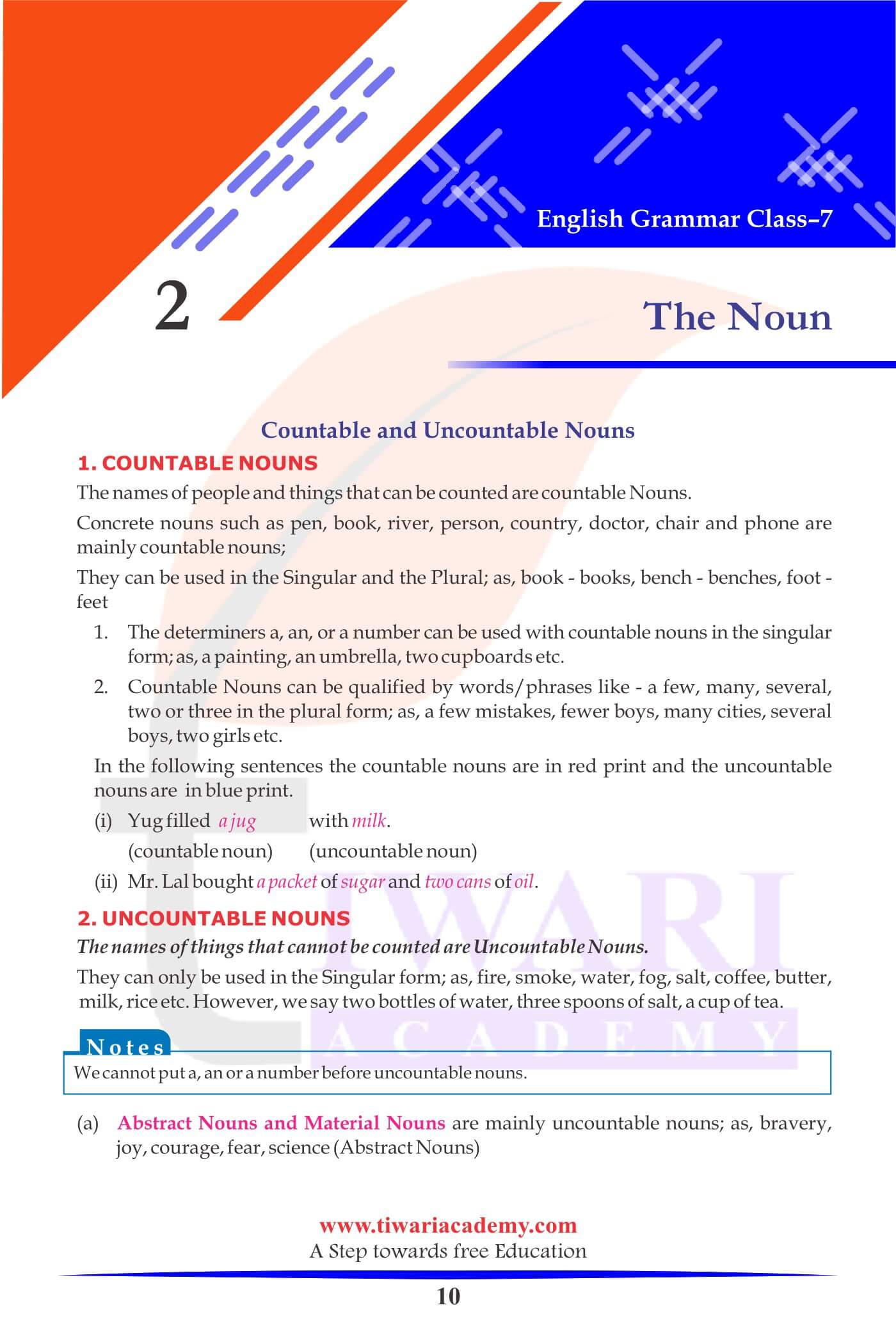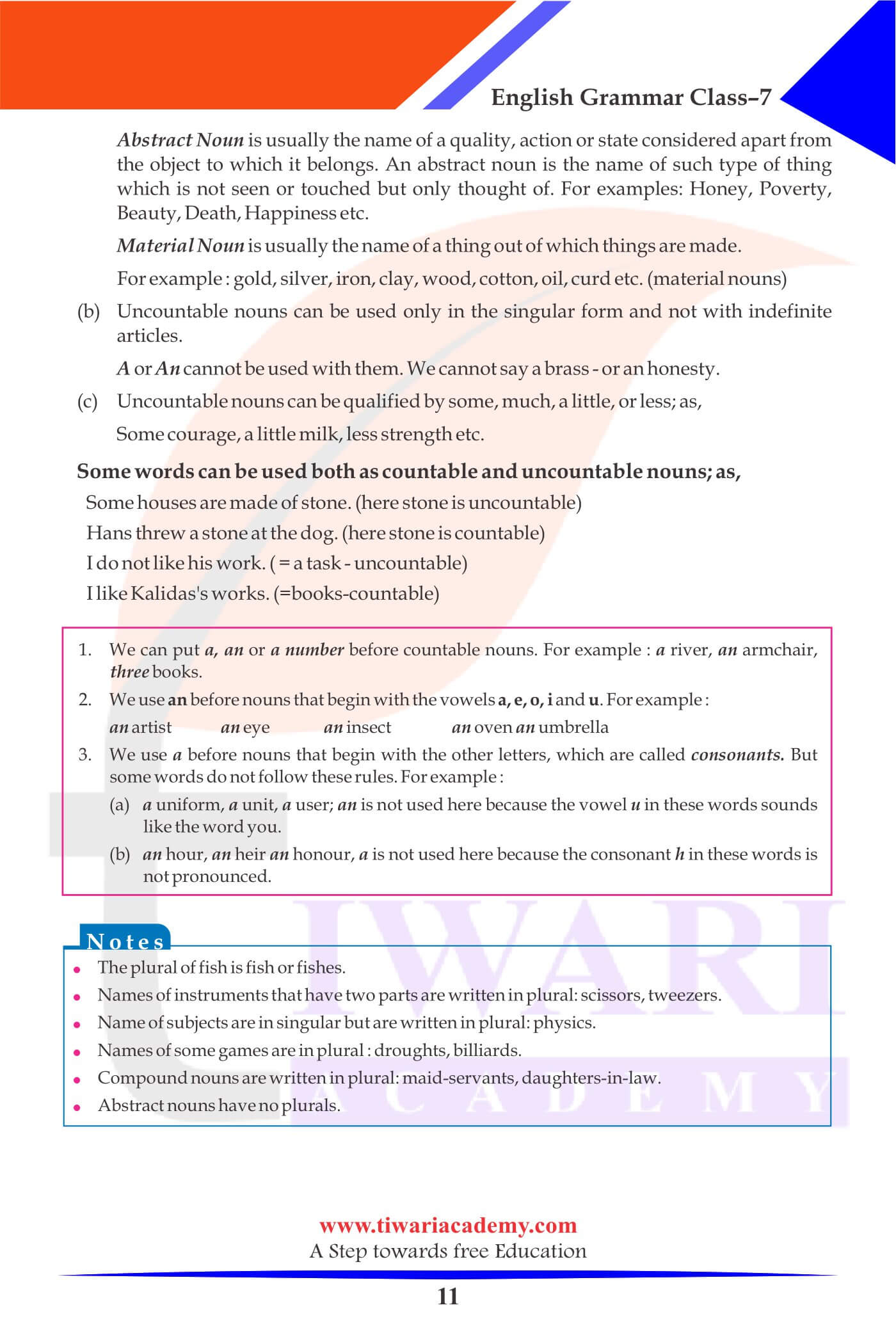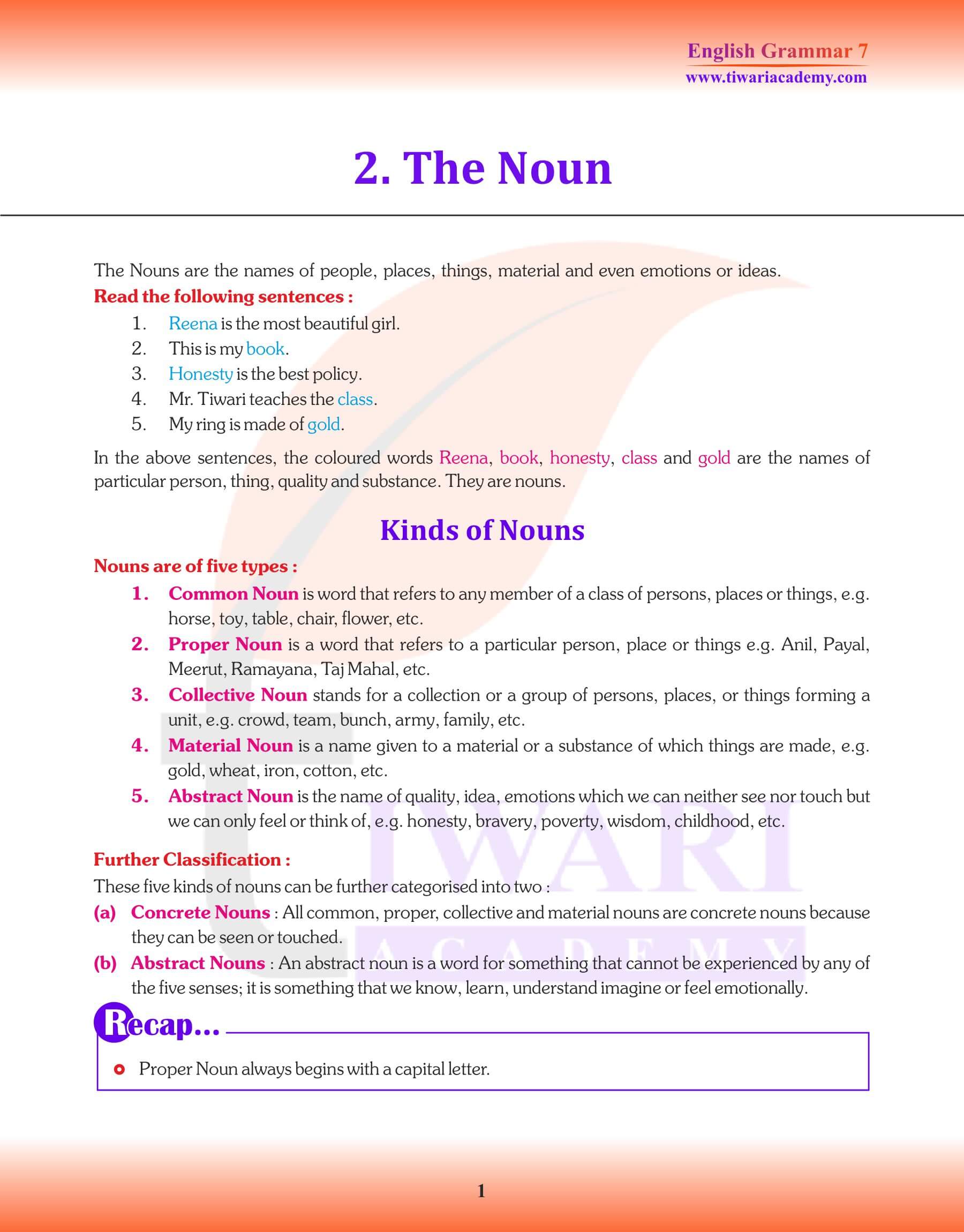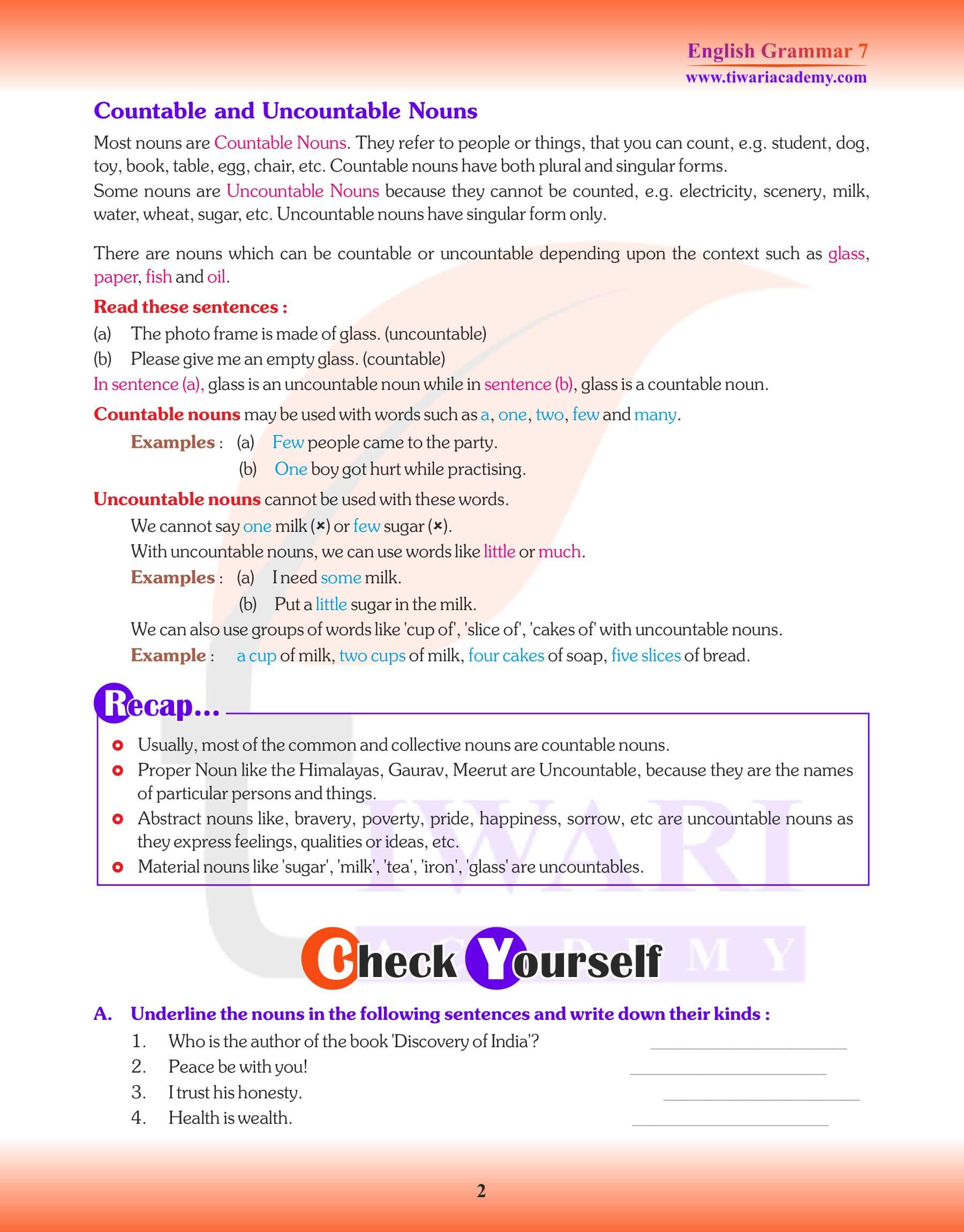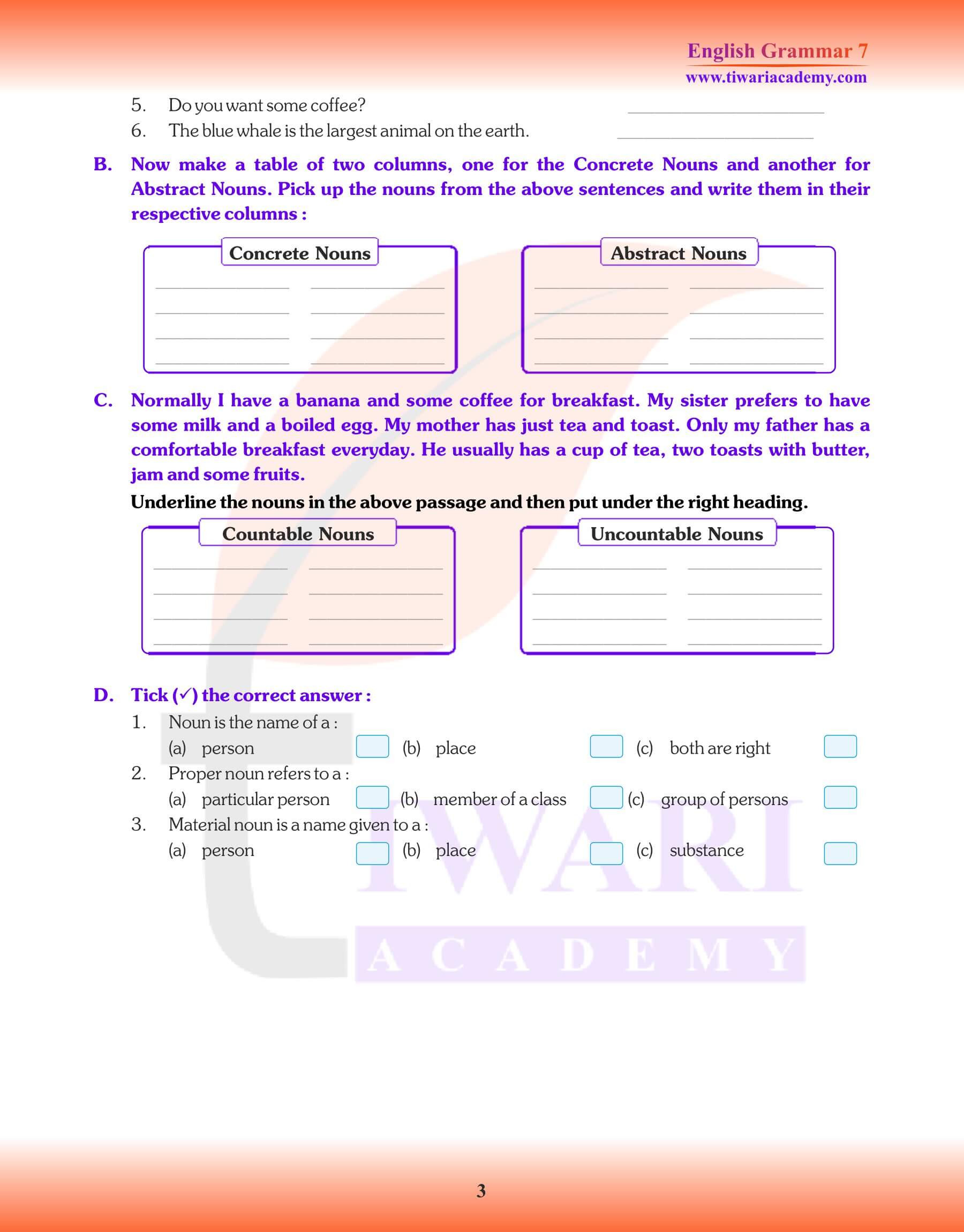Class 7 English Grammar Chapter 2 The Noun. Here, we will study about Countable and Uncountable Nouns. Examples of each type of noun are given to explain the topic properly. This chapter explains about Abstract Nouns and Material Nouns also with suitable examples. All the examples are taken from day to day life activities.
Class 7 English Grammar Chapter 2 The Noun and its Kinds
Chapter 2 of Class 7 English Grammar illuminates the fascinating world of nouns, an integral aspect of the English language. Nouns are more than just names; they are labels for everything we see, feel, or imagine. Within this chapter, special emphasis is given to distinguishing between Countable and Uncountable Nouns. These classifications are crucial as they influence sentence construction and verb conjugation. Real-life examples make understanding these classifications easier, ensuring that learners can effortlessly identify and differentiate between them in their everyday conversations and writings.
Class 7 English Grammar Chapter 2 Noun
| Class: 7 | English Grammar |
| Chapter: 2 | The Noun |
| Content: | Textbook and Revision Book |
| Session: | 2025-26 |
Class 7 English Grammar The Noun and its Kinds
Main points to be remembered
- The plural of fish is fish or fishes.
- Names of instruments that have two parts are written in plural: scissors, tweezers.
- Name of subjects are in singular but are written in plural: physics.
- Names of some games are in plural : droughts, billiards.
- Compound nouns are written in plural: maid-servants, daughters-in-law.
- Abstract nouns have no plurals.
In addition to the basic distinction, this chapter delves into other classifications, namely Abstract Nouns and Material Nouns. Abstract Nouns represent feelings, ideas, or qualities that aren’t tangible, like ‘love’ or ‘freedom.’ On the other hand, Material Nouns refer to raw materials or substances from which objects are made, such as ‘gold’ or ‘wood.’ The beauty of these classifications lies in their omnipresence in our daily lives. Every sentence we utter or scribble contains nouns, and recognizing their type and role enhances our command over English, aiding both in academic and real-world communication scenarios.
Countable Noun
1. We can put a, an or a number before countable nouns. For example : a river, an armchair, three books.
2. We use an before nouns that begin with the vowels a, e, o, i and u. For example: an artist, an eye, an insect, an oven, an umbrella.
3. We use a before nouns that begin with the other letters, which are called consonants. But some words do not follow these rules. For example:
(a) a uniform, a unit, a user; an is not used here because the vowel u in these words sounds like the word you.
(b) an hour, an heir an honour, a is not used here because the consonant h in these words is not pronounced.
Some words can be used both as countable and uncountable nouns
- Some houses are made of stone. (here stone is uncountable)
- Hans threw a stone at the dog. (here stone is countable)
- I do not like his work. ( = a task – uncountable)
- I like Kalidas’s works. (=books-countable)
Abstract Noun
Abstract Noun is usually the name of a quality, action or state considered apart from the object to which it belongs. An abstract noun is the name of such type of thing which is not seen or touched but only thought of. For examples: Honey, Poverty, Beauty, Death, Happiness etc. Material Noun is usually the name of a thing out of which things are made. For example : gold, silver, iron, clay, wood, cotton, oil, curd etc. (material nouns)
Uncountable nouns
Uncountable nouns can be used only in the singular form and not with indefinite articles. A or An cannot be used with them. We cannot say a brass – or an honesty. Uncountable nouns can be qualified by some, much, a little, or less; as, Some courage, a little milk, less strength etc.
Countable Noun
The names of people and things that can be counted are countable Nouns. Concrete nouns such as pen, book, river, person, country, doctor, chair and phone are mainly countable nouns; They can be used in the Singular and the Plural; as, book – books, bench – benches, foot – feet
- The determiners a, an, or a number can be used with countable nouns in the singular form; as, a painting, an umbrella, two cupboards etc.
- Countable Nouns can be qualified by words/phrases like – a few, many, several, two or three in the plural form; as, a few mistakes, fewer boys, many cities, several boys, two girls etc.
Countable and Uncountable Noun
In the following sentences the countable nouns are and the uncountable nouns are given simultaneously.
Shruti filled a jug (Countable) with milk (Uncountable).
